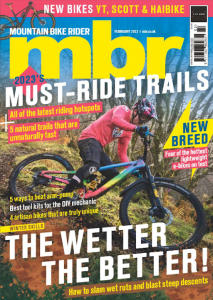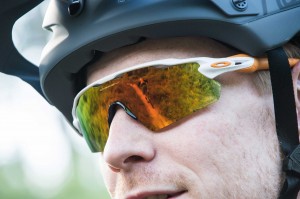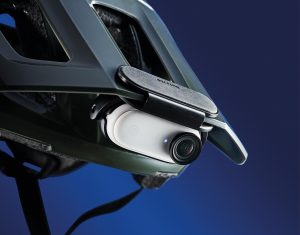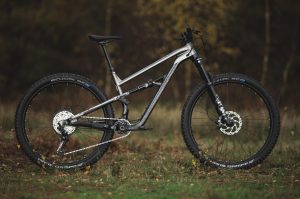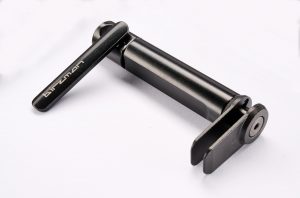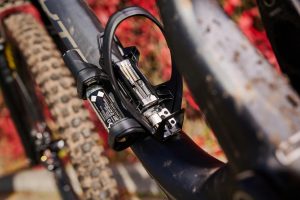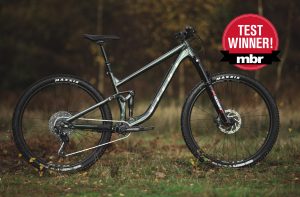Do you have more than £1,000 to spend? Want to know what is the best mountain bike under £2,000? Answer: decent parts, good geometry, rewarding handling.
We’ve got a theory at mbr that the sweet spot for value is around the £2,000 mark. Spend loads more and the law of diminishing returns kicks in and you’re paying for marginal gains. Much less and there will be compromises to be made, usually in terms of the specification and durability. Not only that, once you reach this sort of price point, the frames on mountain bikes are often identical to those found on more expensive flagship models. Frame geometry and suspension play the biggest part in differentiating machines, so if these are dialled then everything else should fall into place.
Unlike the huge gains from going from the best mountain bikes under £500 up to the best under £1,000, spending more than £2,000 and sure you’ll gain small benefits in weight but you’re unlikely to find huge leaps in overall performance. These sub-£2k pound-for-pound performers that are hard to beat and are arguably the best mountain bike value options bar none.
Best mountain bike under $2,800/£2,000: hardtails
We’ve picked our favourites, some of which are £2,000/$2800 on the nose and the rest will leave you with enough change for a helmet, knee pads or even a dropper seat post.

Whyte 629 V4
Whyte 629 V4
The hardtail that flatters experts and beginners alike
Wheel size: 29in | Frame sizes: M, L, XL | Weight: 14.41kg | Suspension travel: 120mm f | Rating: 10/10
Pros: Amazingly composed and stable handling.
Cons: Low-profile rear tyre may not suit all conditions. No size small – for that you need the 27.5in wheel 901 or 905.
The Whyte 629 V4 really impressed us, and in many ways it mirrors its stablemate, the 905, in setting new hardtail standards, this time for 29ers. Ultimately it is balanced, composed, stable and precise, and whether you’re a relative beginner, or an experienced trail rider, you’ll instantly become addicted to its ways…
Read out full review of the Whyte 629 V4

Merida Big Trail 600
Merida Big Trail 600
Fun, fast trail bike with excellent sizing
Wheel size: 29in | Frame sizes: S, M, L, XL, XXL | Weight: 13.86kg | Suspension travel: 140mm f | Rating: 9/10
Pros: Lighter than most rivals.
Cons: Poor wet weather brake performance.
Merida’s Big Trail 600 boasts an engaging ride quality and feature-packed frame that instantly impressed us – making it a very compelling choice whatever your skill level. With its low weight and sweet handling the Big Trail 600 ripped, especially in drier conditions. It’s also worth taking an in-depth look at the geometry chart. So if you’re 6ft or taller we’d recommend taking advantage of the short seat tubes by going up a frame size (yes, they make a XXL…) and with it the added stability of a longer reach and front centre.
Read out full review of the Merida Big Trail 600

Nukeproof Scout Comp
Nukeproof Scout 290 Comp
Light weight with sharp handling
Wheel size: 29in | Frame sizes: M, L, XL | Weight: 13.95kg | Suspension travel: 130mm f | Rating: 9/10
Pros: Stellar specification. Compliant ride.
Cons: Care needed with sizing. Tall seat tube. Only three frame sizes.
Although it doesn’t boast the most up-to-date sizing and fit, we can’t fault the ride quality of Nukeproof’s Scout. When we last reviewed the Scout it was the smaller wheeled 270 and we praised the compliance of its frame. It’s no different with this 290 Comp either – smooth, comfortable and quiet, allowing your mind to stay focused on the trail ahead. Yes, the XL Scout would certainly benefit from a shorter seat tube and a longer head tube, or at the very least and adjustable stroke dropper to get the best from the frame and as it’s very much at home on the descents.
Read our full review of the Nukeproof Scout 290 Comp

Specialized Fuse Comp 29
Specialized Fuse 29
High tech hardtail masterwork
Wheel size: 29in | Frame sizes: S, M, L, XL | Weight: 14.12kg | Suspension travel: 130mm f | Rating: 8/10
Pros: High-tech frame design
Cons: Front end is too low
The Fuse 29 is a fast, fun and efficient alloy hardtail, but best of all it doesn’t shake the life out of you on rougher trails. But rather than simply making up the numbers in the trail hardtail category, Specialized could tweak them and lead the way. With a slacker head angle, lower BB height and extra length in the front end, the Fuse would have the attitude to match the ride quality of its superbly engineered frame. Maybe Specialized needs to roll out a Fuse Evo, just like it did with the Stumpy.
Read our full test review of the Specialized Fuse 29 Expert

Canyon Stoic
Canyon Stoic
Impressively balanced handling
Wheel size: 29in | Frame sizes: S, M, L, XL | Weight: 13.98kg | Suspension travel: 140mm travel f | Rating: 9/10
Pros: Superb balanced handling.
Cons: BB could be lower
We’ve been asking for a trail hardtail from Canyon for years, and had almost given up hope of ever seeing one when the Stoic arrived. Yes, the geometry on the Stoic isn’t as progressive or as hardcore as some, but the bike is all the more versatile for it. The alloy frame makes it light, agile and ultra-fast to accelerate, while the competitive build kit leaves nothing wanting. Would it be even better in a mullet configuration with a 2.6in rear tyre? Probably, but it’s still a great trail hardtail that can also hang with the hardcore crew.
Read our full test review of the Canyon Stoic 4

Polygon Siskiu T8
Best mountain bike under $/£2,000: full-suspension
Now it’s the time of the full-sus shortlist. Any of these five best mountain bike under £2,000 full-sussers will be a blast to ride if your terrain or riding style is better suited to full sussers.

Polygon Siskiu T8
Polygon Siskiu T8
The legendary Calibre Bossnut by a different name
Wheel size: 27.5in or 29in | Frame sizes: S, M, L, XL | Weight: 15.6kg | Suspension travel: 150mm f/140mm r 27.5in, 140mm f/135mm r 29in | Rating: 9/10
Pros: Progressive sizing and geometry, great value for money
Cons: Needs a Shimano chain
Calibre Bikes, sold exclusively through outdoor giant, Go Outdoors, blew the entry-level full-suspension bike market to smithereens when it launched the original Bossnut back in 2016. And it continued to be the benchmark full-suspension bike until the pandemic hit. Supply issues have meant the Bossnut has disappeared from showroom floors recently, but while we wait for Calibre to launch a new range of bikes, there is another option. Calibre’s frames were made by Polygon, and the Indonesian manufacturer has adopted the geometry and suspension tuning that made the Bossnut head and shoulders above the competition, and applied it to the Siskiu. Also sold through Go Outdoors, the Siskiu is available with 29in or 27.5in wheels depending on the frame size, with the larger frames using 29in wheels and the smaller ones getting 27.5in hoops.
With the Siskiu T8 29, Polygon has proven that entry-level pricing does not have to equate to entry-level performance or a lacklustre frame finish. And thanks to the thoroughly modern geometry and sizing, the Siskiu T8 is a bike that can be ridden hard straight from the get go. Yes, there are some weaknesses in the build kit, but fitting a new chain and better tyres are easy and affordable fixes. As such, the Siskiu T8 can evolve with you as your riding progresses, without it ever making you feel like it’s the equipment that’s holding you back.
Read the full review of the Polygon Siskiu T8

Vitus Mythique 29 VRX
Vitus Mythique
High performance trail bike at an unbeatable price
Wheel size: 27.5in or 29in | Frame sizes: S, M, L, XL | Weight: 15.54kg | Suspension travel: 150mm f/140mm r 27.5in, 140mm f/135mm r 29in | Rating: 10/10
Pros: Brilliant frame quality and handing
Cons: Honestly can’t think of any!
There are four different models in the newly refreshed Vitus Mythique range for 2023, with prices starting at £1,599.99 and topping out at £2,399.99. All models use the same alloy frame with four-bar linkage suspension, but wear different components depending on the price point. Like Polygon, Vitus uses both 27.5in and 29in wheels for the Mythique range, but in this case all four frame sizes and three spec levels are available with either wheel, so you don’t have to compromise on your ultimate combo. Cheaper bikes get X-Fusion suspension and a 1×10 drivetrain, but there’s still grippy Maxxis tyres and an indispensable dropper post on the entry-level model. Further up the range you’ll find 1×12 drivetrains and better suspension, with Marzocchi forks and RockShox shocks, so you’ll find yourself going faster with greater control. New for 2023 is also a AMP model with a RockShox Pike Select fork and other choice upgrades.
Speed, smiles, and style; the new Vitus Mythique VRX has all in equal measure. It’s a trail bike that covers a huge remit without the hefty price tag to match. And while every price-point bike is a compromise, Vitus has emphasised the things that matter most to ride quality, without leaving any glaring holes in the specification. The fact that the frame looks every bit as polished as high-end bikes, just adds to the overall appeal. So whether you’re starting out in mountain biking or are a seasoned rider looking for a trail bike that offers unbeatable value, we simply can not recommend the Mythique highly enough.
Read the full review of the Vitus Mythique 29 VRX (2023)

The speed of trickle down has exceeded the pace of inflation when it comes to the best budget full-suspension bikes
Should I buy a full-suspension bike or a hardtail mountain bikes for under £2,000?
That’s a difficult question to answer definitively at this price point as it depends on your priorities. Full-suspension makes the most sense for most riders as it gives greater comfort and control and allows you to ride further and faster with less energy on proper mountain bike trails. But extra complication and more parts mean the bikes are more expensive than an equivalent hardtail, so you will either pay more or get a full-sus bike with a more basic specification. The rise of direct sales brands and own brand marques from the bigger retailers mean you can have your cake and eat it to a degree, but you will still have to accept some compromises. However, the full-sus bikes we’ve recommended here are excellent starter models and can easily be upgraded over time with better parts, so it still makes financial sense. The bottom line remains; you can’t add rear suspension to a hardtail, but you add better parts to a full-suspension bike.
If you want to check out what you can get in the front-suspended world, there’s our comprehensive guide to the best hardtail mountain bikes.
How much suspension travel do I need?
The term ‘trail bike’ is as generic as mountain biking itself. It is synonymous with singletrack shredding, but with as many styles of bike as there are varieties of terrain; it’s easy to see how you could drown in a sea of choice. And that’s without even considering all of the different wheel sizes on offer.

The best budget full-suspension bikes don’t require you to corners on performance
One category that has always hit the trail bike sweet-spot, at least in terms of suspension, are 120-150mm travel full-suspension bikes. Broadly defined as trail bikes, at one end 120mm models will be better at covering ground – mile munching, if you will – with tight, efficient response to pedalling inputs and sharper handling that requires a light touch from the rider. Obviously they won’t isolate you as well from bigger bumps and rougher tracks, so are less at home in enduro-rated terrain. As you move up towards 150mm of travel, the trail bike becomes almost a mini-enduro bike, with slacker angles that work better at higher speeds, suspension that is able to absorb bigger hits and heavy landings. The frames will be heavier and stronger, but also more tiring to accelerate and decelerate and a touch less agile. Think carefully about where you ride and your fitness and skill levels. Look at what other riders are using. Then decide what the minimum you can get away with is.
What components should I look out for under £2,000?
Make sure the bike has a dropper seatpost, as this will really help your descending by letting you get the saddle out of the way and your body weight lower. The suspension fork and rear shock should have adjustable rebound damping and the option to add or subtract volume spacers to tune how progressive the suspension feels. Look for easily serviceable parts, such as threaded bottom brackets and bearing kits for all the suspension pivots. In terms of drivetrain, SRAM NX or SX or Shimano Deore are preferable. Make sure the bike has a single-ring drivetrain – one chainring at the front and 11 or 12 sprockets at the back. This gives a wide range for climbing and descending, it saves weight, simplifies shifting and helps stop the chain from falling off on rough descents. Make sure the wheels are tubeless compatible, so you can ditch the inner tubes and add some sealant instead. This also saves weight and reduces the chance of punctures from things such as thorns.


